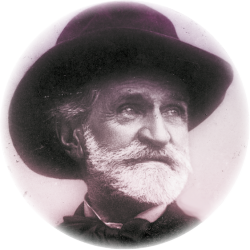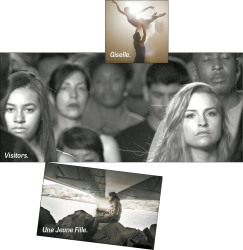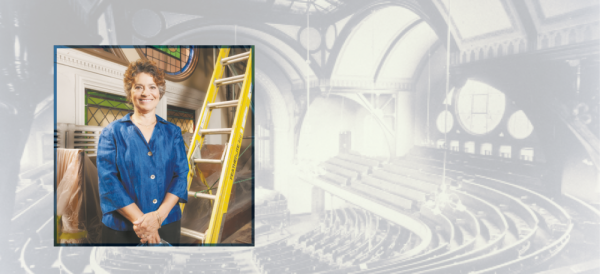Viva Verdi! An appreciation by Janos Gardonyi
 Who was Giuseppe Verdi and what makes him unique and different from that other fellow born in the same year of 1813 — Richard Wagner? Verdi was from Italian peasant stock and therefore strong, healthy, tough and stubborn, and lived a long life of 88 years (unlike Wagner who was plagued with ill health throughout his life and died before the age of 70). This toughness, coupled with great ambition, enormous talent, almost boundless energy and shrewd business acumen, enabled him to write ten operas in just seven years, one for each major opera house in Italy; and by the age of 40 he became the talk of his nation, rich and respected. He was also a pleasant man who was kind to his parents and his wife, but also a bit shy and wary of publicity. He was no egotist, womanizer or debt-ridden spendthrift like Wagner, but rather a patriot and great supporter of a unified Italy who shared his wealth generously and was charitable to the less fortunate.
Who was Giuseppe Verdi and what makes him unique and different from that other fellow born in the same year of 1813 — Richard Wagner? Verdi was from Italian peasant stock and therefore strong, healthy, tough and stubborn, and lived a long life of 88 years (unlike Wagner who was plagued with ill health throughout his life and died before the age of 70). This toughness, coupled with great ambition, enormous talent, almost boundless energy and shrewd business acumen, enabled him to write ten operas in just seven years, one for each major opera house in Italy; and by the age of 40 he became the talk of his nation, rich and respected. He was also a pleasant man who was kind to his parents and his wife, but also a bit shy and wary of publicity. He was no egotist, womanizer or debt-ridden spendthrift like Wagner, but rather a patriot and great supporter of a unified Italy who shared his wealth generously and was charitable to the less fortunate.
Born october 10, 1813, Verdi was, in a word, the right man for the right time. Italy had been a very musical nation from time immemorial. As early as the 16th century opera was “invented” by an Italian, Monteverdi, albeit in a primitive form, but it continued to be developed by a succession of composers who glorified the singing voice through a style called “bel canto.” By the early 19th century there were masters like Bellini and Donizetti and countless lesser composers, now forgotten, who became great celebrities providing the finest musical theatre entertainment the Italian public craved. They were followed by Gioachino Rossini, a musical wunderkind who took the helm and became enormously rich with some 60 very successful operas. However, after the death of his wife in 1845, Rossini retired from the opera scene, Bellini was dead and Donizetti in an insane asylum, so there was a vacuum ready to be filled. And it was this country boy, this Giuseppe Verdi who filled it.






